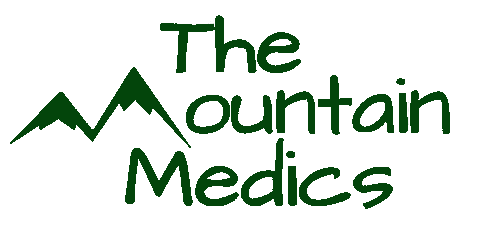
Outdoor First Aid Course
The Mountain Medics 16 hour outdoor first aid course is led by a team of highly experienced and qualified instructors, our course goes beyond the traditional first aid training. We understand the unique challenges of remote and wild environments, and our curriculum is tailored to address those specific scenarios. From managing injuries caused by slips and falls to dealing with exposure to the elements, we cover a wide range of practical scenarios you might encounter in the wilderness.
By choosing our paramedic-led first aid training, outdoor instructors can enhance their qualifications and ensure the safety of themselves and their clients in remote and challenging settings.
The Mountain Medics Outdoor First Aid course is the best choice for those seeking comprehensive and practical training tailored for real-world outdoor scenarios. The course combines extensive knowledge with hands-on experience, ensuring participants gain the confidence and skills necessary to respond effectively to emergencies in remote environments. Unlike generic courses, the content is specifically designed to address the unique challenges of outdoor settings, such as delayed rescue times and the need for improvised techniques. This focus on relevant skills, along with the provision of HSE-compliant training, equips individuals with essential life-saving abilities that are vital for adventurers, outdoor leaders.
Our comprehensive first aid training is ideally tailored for outdoor instructors, encompassing a wide variety of professionals such as those affiliated with the British Mountaineering Council (BMC), D of E leaders, sailors from the Royal Yachting Association (RYA), ecologists, rangers, forestry workers, mountain bike guides, canoe and kayak instructors, field studies teachers, expedition leaders, and many others engaged in outdoor activities.
-
-Introduction to Outdoor First Aid
-Importance of outdoor first aid
-Recognising the unique challenges of providing aid in remote locations
-Assessing the Situation
-Scene safety assessment
-Prioritising care based on the injury or medical condition
-Basic Life Support
-Cardio-pulmonary resuscitation (CPR) (Taught to resus council guidelines)
-Use of automated external defibrillators (AEDs)
-Bleeding and Wound Management
-Different types of bleeding
-Application of pressure dressings and tourniquets
-Cleaning and dressing wounds in outdoor settings
-Fractures, Sprains, and Strains
-Identifying fractures, sprains, and strains
-Immobilisation techniques using improvised materials
-Environmental Hazards
-Heat-related illnesses (heat exhaustion, heatstroke)
-Hypothermia and cold-related injuries
-Recognising and managing dehydration
Day 2:
-Head and Spinal Injuries
-Techniques for stabilising the head and neck
-Allergies and Anaphylaxis
-Recognising allergic reactions and anaphylaxis
-Administering epinephrine (EpiPen) and managing allergic emergencies
-Insect and Animal Bites
-First aid for stings and bites
-Handling animal bites and potential rabies exposure
-Water Safety
-Drowning prevention and rescue techniques
-Management of near-drowning victims
-Improvised First Aid Techniques
-Creating improvised splints, slings, and bandages
-Evacuation and Communication
-Developing an emergency evacuation plan
-Utilising communication devices in remote areas
-
Upon successful completion of the course you will be awarded your outdoor First Aid certificate which is valid for 3 years
-
Various locations available and in house training available for groups. please contact for further details

